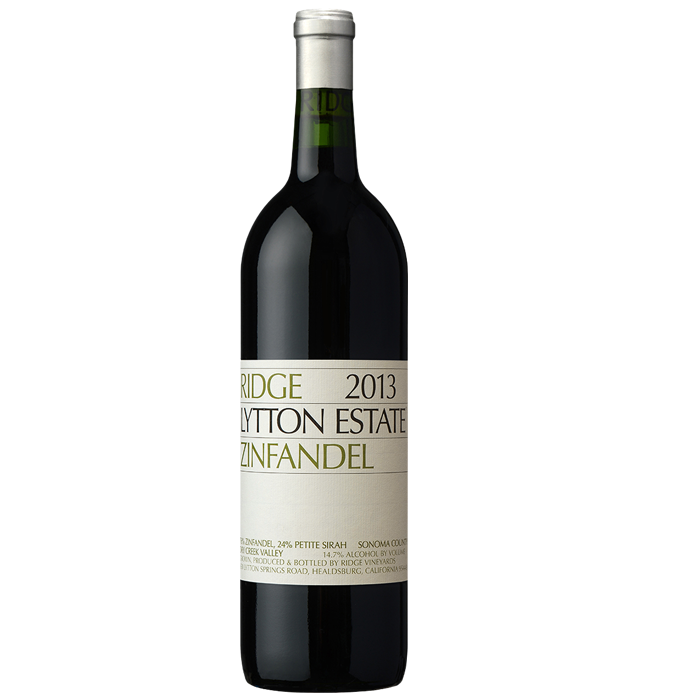
2013 Lytton Estate Zinfandel
Wine Information
76% Zinfandel, 24% Petite Sirah
Vintage
2013
Vineyard
Lytton Springs
Appellation
Dry Creek Valley
Alcohol By Volume
14.7%
Winemaker Tasting Notes
Nose of blackberry jam, licorice and pepper. Full bodied and rich on the palate with well-coated tannins. Notes of mineral and mint add to the lingering finish. JO (1/17)
Vintage Notes
This year in assembling the Lytton Springs, three wines, though excellent alone, did not improve the blend. Two—from old vines at Lytton East—were particularly rustic, but worked well with the third, a ripe, hillside zinfandel from Lytton West. Once combined, they aged for fourteen months in american oak. Beautifully balanced, this Lytton Estate will evolve over a ten-year period.
History
In 1972, Ridge made its first Lytton Springs from vines planted at the turn of the 19th century. We purchased both the eastern and western portions of the vineyard in the early 1990s. (In the 1870s, under “Captain” William Litton’s ownership, the two were part of one property; spelling evolved into “Lytton” by 1903). Each year, we harvest and ferment separately the approximately 30 parcels that make up the Lytton springs Vineyard. In some vintages, during blending we hold out certain blocks that, due to ripeness or structure, show better on their own. We combine these to make the Lytton Estate.
Growing Season
Rainfall: 25-30 inches (below average)
Bloom: Early to Mid-May
Weather: Warm Spring and early summer followed by cooler weather that slowed ripening.
Winemaking
Harvest: 10 September through 8 October
Grapes: Average brix 25.2˚
Fermentation: Natural primary and secondary(malolactic) fermentations. Pressed at seven days.
Barrels: 100% air-dried american oak barrels (20% new, 15% one year old, 35% two to three years old, and 30% four to five years old).
Aging: Fourteen months in barrel
All estate-grown, hand harvested grapes; destemmed and crushed; fermented on the native yeasts; followed by full malolactic on naturally-occurring bacteria; oak from barrel aging; 1.75g/L tartaric acid added; a total of 3 % rehydration during fermentation; minimum effective sulfur (35 ppm at crush, 227 ppm over the course of aging); pad filtered at bottling. In keeping with our philosophy of minimal intervention, this is the sum of our actions.
Consumer Tasting Notes
Average Rating: 90.4
No. of Tasting Notes: 78
View this wine on CellarTracker
Wait!
In order to qualify for user related discounts, you must log in before proceeding with checkout. Click the button below to log in and receive these benefits, or close the window to continue.
Log In